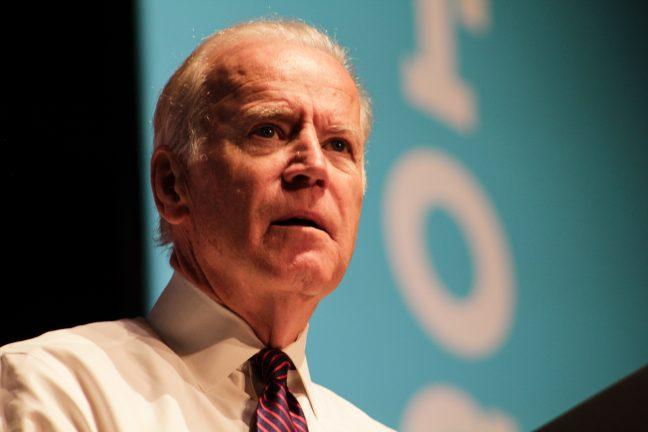For more than 30 years, officials in higher education have made a mission of leveling the playing field for potential college applicants in a variety of ways.
One of those was the creation of affirmative action in the mid-'40s. The aim was to temporarily increase campus diversity, which had been horribly corrupted for minority students who wished to seek a quality education originally offered to only white students.
Since its inception, affirmative action has been a controversial topic often questioned for several reasons, including reverse discrimination and universities who may strive to meet the appropriate diversity numbers.
However, the constant rumble in higher education over affirmative action often overshadows another earlier effort made by university administrators to offer more opportunities for worthy college candidates — need-based financial aid.
Unlike affirmative action, need-based financial aid has not had the desired impact, according to November's Atlantic Monthly.
"It's true that more low-income students enroll in college now than in the 1970s — but they are less likely to graduate than their wealthier peers," the Atlantic reported. "The proportion of the poorest Americans obtaining college degrees by age 24 has remained around 6 percent.”
Across the country, lower-income students are confronted with the impossibility of ever attending a university, let alone their top choice. The University of Wisconsin is among those flagship universities who have been unable to tackle the issue effectively.
Socio-economics
According to UW Interim Provost Virginia Sapiro, the average household income of a Wisconsin resident is $45,000. The average family household income of a UW student is $90,000.
However, Sapiro noted an investment in higher education could have significantly better results than otherwise.
"Let's think of it this way: if you go to college, your earning power goes up about a million dollars over the course of your life," Sapiro said. "It's money, but it's also the options and the kind of life you live."
Still, the UW System has faced continued tuition hikes and a reduction in state support. Concurrently, students who are part of the lowest-income quintile are continually disappearing from the Madison campus.
According to UW System statistics, the proportion of new UW freshmen who are part of the lowest-income bracket within the entire UW System was 14.7 percent in 1992. By 2002, that number dropped to 11.2 percent. Similarly, the proportion of new UW freshmen in the lowest-income bracket at UW-Madison has dropped to 6.6 percent in 2002 from as high as 9.8 percent in the early '90s.
"It doesn't represent the state very well," said Susan Fischer, director of the UW Office of Student Financial Services. "Is it sticker shock? Is it that the people out there don't feel they have the option of going [to college]?"
Fischer added that many families cannot afford to pay for standardized tests like the ACT or SAT, nor do they have access to common resources like guidance counselors.
The UW Office of Student Financial Services provides financial aid to roughly half of the current 28,000 UW undergraduate students. Of those, only 650 in-state students and 170 out-of-state undergraduates are fully funded.
"Where it really becomes a tragedy is when we've got that family of three kids sitting around the dinner table and they're not talking about going to college," said UW Board of Regents President David Walsh, "because their parents can't afford it."
Socio-economics vs. affirmative action
In order to challenge skyrocketing tuition and the lack of state and federal support for higher education, many policymakers have suggested the creation of a form of affirmative action for lower income students.
Among those include a March 2003 study by researchers Anthony Carnevale and Stephen Rose who suggested a vigorous use of "economic affirmative action," though they recognize that financial aid policies ultimately must be changed in order to increase access to America's colleges and universities.
"Our analysis finds that low-income students are hugely underrepresented at selective colleges, and many more of them could be admitted and succeed," Carnevale and Rose stated in their study.
In fact, the researchers argue the practice would come down to simple aggressive outreach.
"The current public dialogue tends to emphasize the decisions that highly selective colleges make when choosing among applicants," the researchers stated. "Even among students who do go to college, students and families choose colleges more than colleges choose students and families."
In addition, Carnevale and Rose argued racial affirmative action should remain in place since socioeconomic preferencing alone could not increase diversity on campus.
According to Sapiro, the UW has embarked on several "bridge-and-tunnel" outreach programs to help convince students to consider coming to college, including the Pre-College Enrichment Opportunity Program for Learning Excellence (PEOPLE).
"We make really good handshakes, help inspire and assist as many middle school and high school students as we can to make themselves eligible," Sapiro said. "We have to continue to do the best job we can to make sure all the kids by their basic abilities should go off and do terrific things."
Does affirmative action work?
Affirmative action policies have rarely been popular with many since they use non-merit-related indicators to enroll eligible students.
In fact, several studies published earlier this year point to evidence which suggests that affirmative action is detrimental to minority students, including one done by University of California-Los Angeles law professor Richard Sander and another done by the Cato Institute's Marie Gryphon.
Sander's study said black law students were at a disadvantage when they attended schools that used preferences and were 135 percent more likely to not pass the bar exam. In addition, the study showed close to half of black law students were in the bottom tenth of their classes.
Gryphon's study, on the other hand, showed affirmative action did not affect college access because most four-year colleges and universities were not selective, and took any students with a standard high school education.
According to UW professor emeritus of economics, Lee Hansen, an advocate against affirmative action and for academic freedom, "You want people who are academically competitive and who can succeed in college; you shouldn't give preference to anybody, that's the long and short of it."
In fact, many pointed to the necessity of getting educational standards changed at the K-12 level to increase the number of eligible candidates, increase the number of student resources and increase graduation rates.
"I think [universities] have to dramatize the fact that they cannot succeed in hoping to do what they want do unless something happens in K-12," Hansen said.
Sapiro also noted the need for observing the educational process as a whole. However, Sapiro said universities still have a responsibility to assist students.
"I refuse to sit here in a university and throw up my hands and say, 'There's nothing I can do,’" Sapiro said. "Once people come here we need to have a good well-rounded program so people do well."
Despite the difficult financial scenario, many UW officials hope to bring money back to the UW System and reduce costs for UW students.
"I am an optimist. That's why we're in this business," Fischer said. "We're here to provide access for all students of all backgrounds. If I didn't think that, I wouldn't have accepted this job."















